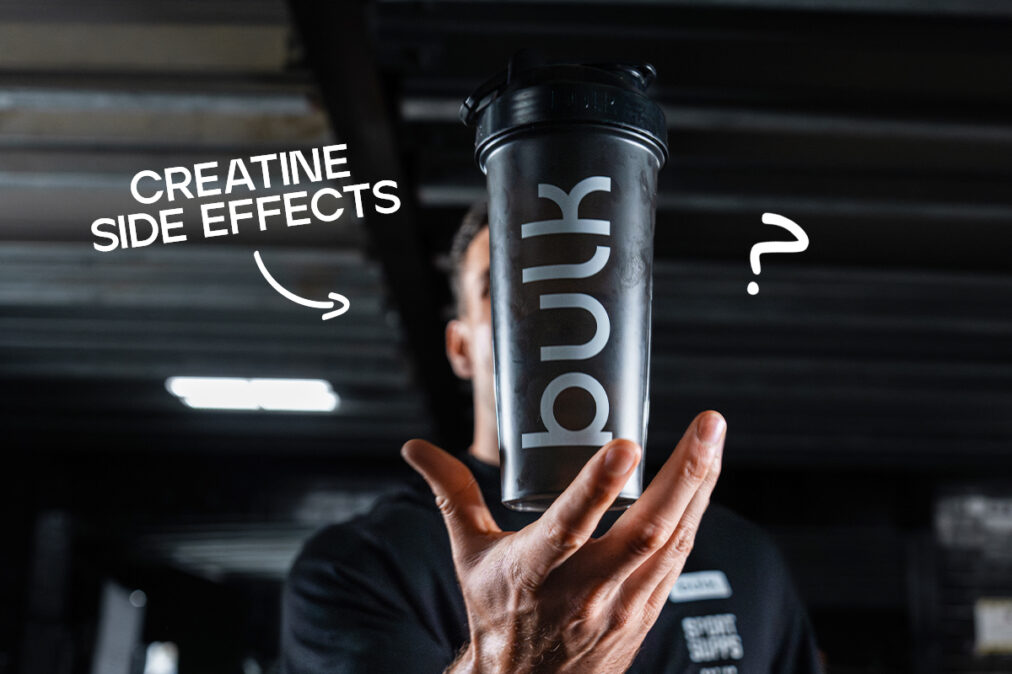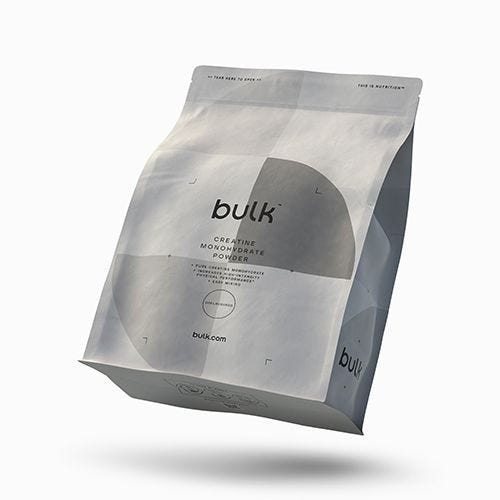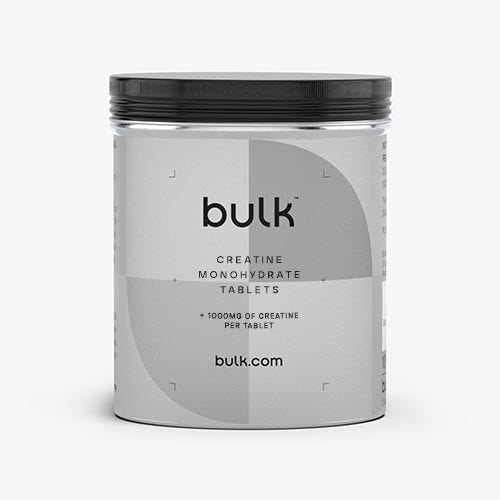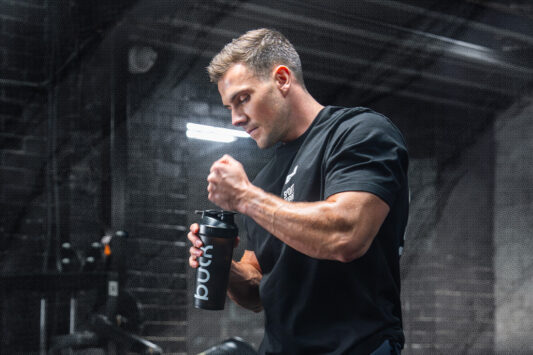Creatine. The world’s most researched supplement. With thousands of studies spanning multiple decades, there’s barely a thing we don’t know about this stuff.
As the studies have backed up, creatine has some incredible benefits, including increased performance in high-intensity exercise. But what about creatine side effects? Surely there must be something these studies have found that removes some of the glimmering shine of creatine’s benefits. Well, let’s take a look.
Here we explore the potential side effects of creatine.
Does creatine have side effects?
Not really. Sorry if that’s an anti-climax.
Creatine is safe and well-tolerated when used as instructed— 3-5g per day in 12-week cycles. However, everybody is different and may experience some minor side effects such as gastrointestinal discomfort or muscle cramping.
If this is the case, staying hydrated and adhering to recommended dosages minimises these effects. Likewise, not everyone reaps the benefits in the same way others do. It’s all genetic, really. The only way is to try it.
Related Products
What is creatine?
“Creatine is an organic compound present in everyone’s muscles, serving as a rapid source of high-intensity energy”, explains in-house expert, Simon Jurkiv.
“There’s so many misconceptions about what creatine actually is”, says Jurkiv. “Creatine is found in everyone’s muscles, and put simply, it’s an organic compound used for high-intensity energy.”
As well as being produced naturally in the liver, we get creatine from protein-rich foods like meat and fish. But to reap the performance-enhancing benefits, supplementation is beneficial to maximise creatine stores in the muscles.
In a normal diet that contains 1-2 g creatine per day, muscle creatine stores are about 60-80% saturated. Supplementation fills up that tank.
Now, let’s get into more detail on the potential side effects of creatine.

Potential creatine side effects
Holding water
Creatine is an osmotically active substance, which means, as you’ll remember from high-school Biology, it draws water when its concentration increases. Therefore, an increase in the body’s creatine content could result in increased water retention (in theory).
Your muscles will hold onto this water, resulting in bloating or puffiness around your arms, legs, or stomach. Your muscles may even appear bigger, even if you’ve just begun your training.
In the first week of taking creatine, some people could gain up to 2 to 4.5 pounds, mainly due to water retention.
However, more recent studies have disputed these claims. While there is some evidence to suggest that creatine supplementation increases water retention at an intracellular level, it does not alter total body water over longer periods of time.
Basically, it’s nothing to worry about.
Muscle cramps
The theory suggesting that creatine supplementation may cause dehydration and muscle cramping is based on the premise that creatine is osmotically active. As explained above, it means holding water.
However, research does not validate the notion that creatine supplementation causes dehydration and muscle cramping. In fact, some studies found muscle cramps decreased in groups taking creatine.
It seems like creatine and muscle cramps are just a myth. Fake news, if you will.
Hair loss
Here’s an interesting one.
Despite being another ‘fact’ passed around in the fitness industry, there isn’t much to indicate that creatine supplementation actually causes hair loss. However, there is a study that often gets brought up in this discussion.
In 2009, a study involving college-age rugby players found increased levels of DHT following three weeks of creatine supplementation. Why is this significant?
Well, DHT levels play a role in hair loss, and this increase could put you at risk, particularly if you’re genetically predisposed to hair loss.
Essentially, this outlines an indirect relationship between creatine and hair loss. But still, as the study itself states, more research is needed into creatine’s effect on DHT levels.
In truth, most of the evidence around creatine and baldness is completely speculative. You may hear things like: ‘Well, if you look at pro bodybuilders and strongmen, most of them are bald’ – even though this might be true, don’t you think this might have something to do with a different set of substances?
Just because you hear someone clever say something on a podcast, doesn’t mean it’s always true.

What are the potential benefits of creatine?
The benefits of creatine include:
- Improved performance in high-intensity exercise (such as more reps resistance training)
- Support for muscular size and strength (due to increased performance)
- Improved muscular endurance
- Enhanced cognitive performance
What is the safest creatine to take?
All creatine is safe to take, but considering Creatine Monohydrate is the most tested form, it can be considered the ‘safest’.
Other types of creatine have just minor changes. For example, Creatine Hydrochloride is creatine bonded with a hydrochloride salt, designed to enhance its absorption.
Then there’s Creatine Ethyl Ester, which is simply creatine with an ester attached. This esterification occurs when carboxylic acid and alcohol react. Anecdotally, CEE users report less water retention when using this supplement, achieving a leaner look. Stress on anecdotal there.

When to take creatine
There’s no specific time for when to take creatine. Your body will store it inside your skeletal system until it’s needed, so the best time to take creatine depends on you and when it’s most convenient.
Many people like to mix creatine into their pre-workout or post-workout drinks. Others stir it into breakfast porridge. Unflavoured is tasteless and mixes well, so it’s easy to include it in all sorts of shakes and smoothies.
Taking creatine consistently is all that matters. Whether you take it in the morning or the afternoon, the important thing is to take it every day.
Summary: Creatine side effects
In conclusion, creatine is an incredible supplement with numerous benefits and minimal risks. There are no real side effects. You just need to be responsible with your dosages.
RELATED ARTICLES
Looking to learn more when it comes to creatine and sports nutrition? We believe that every person, with support, has the right to transform their lives through fitness.
That’s why we’ve put together articles with expert advice, all to help you on your fitness journey. Check out more articles below.
Building muscle mass Creatine vs whey
Creatine loading Creatine ethyl ester
Safe supplements Scientifically proven supplements
Types of creatine Best intra workout
Creatine pre workout Best supplements for muscle growth

















